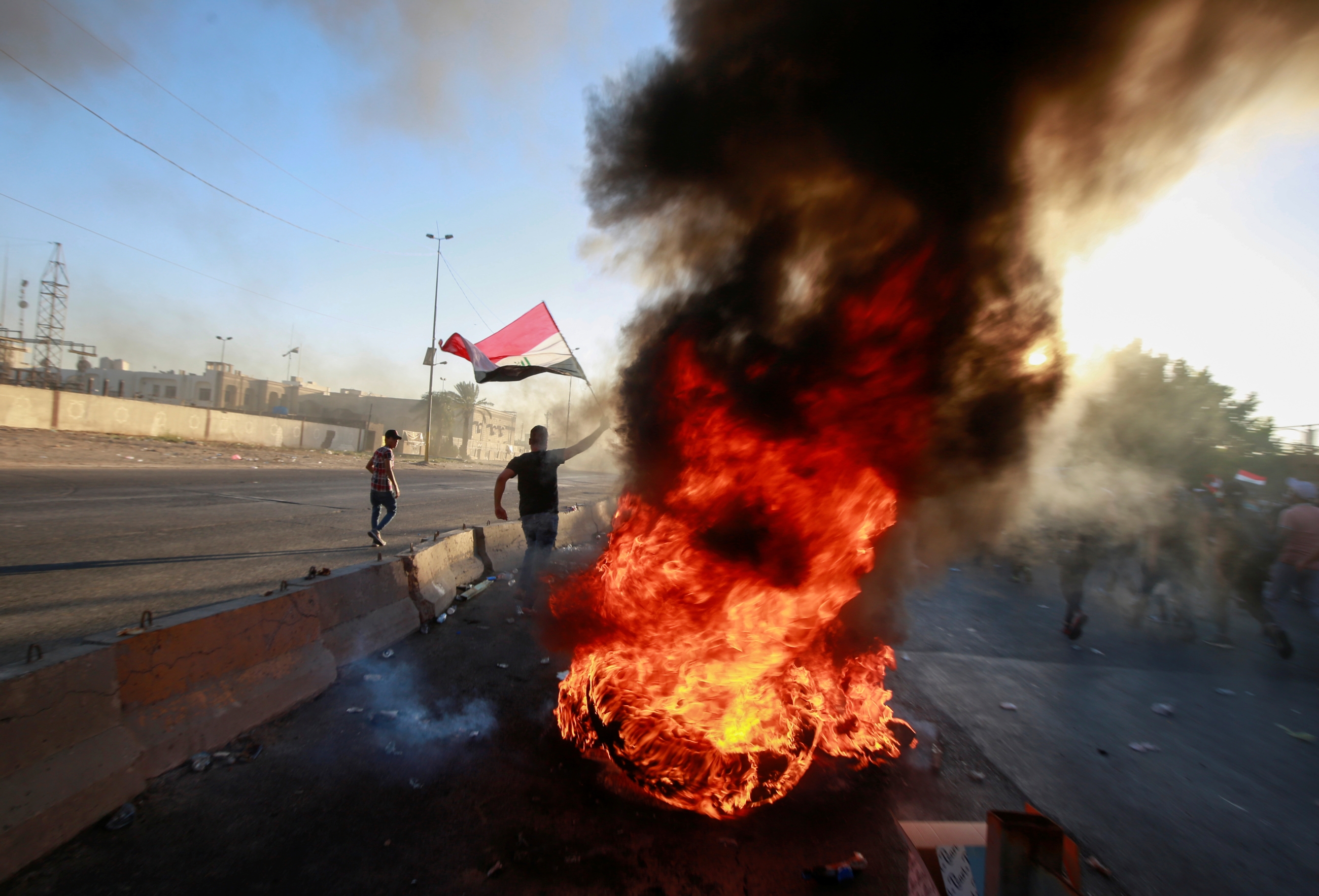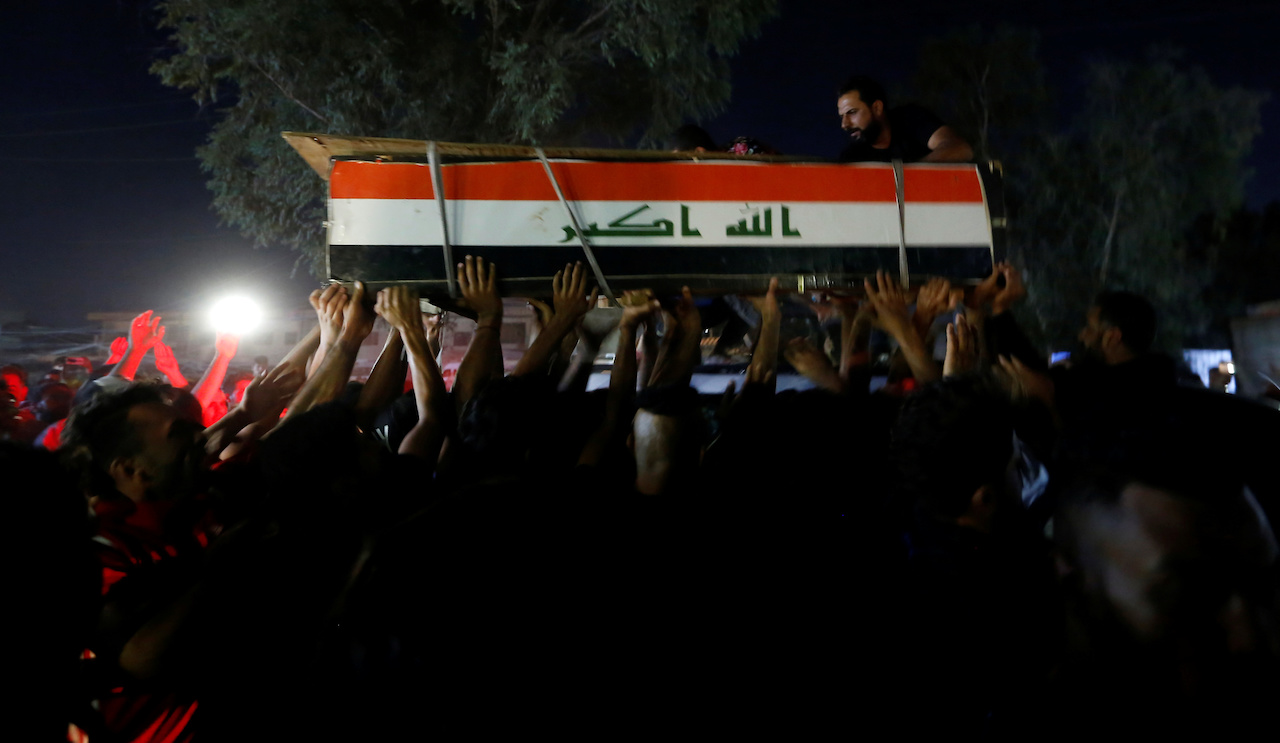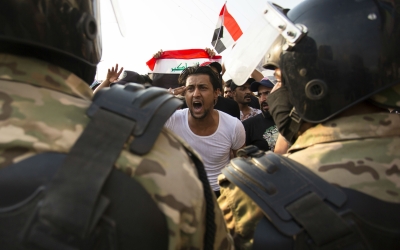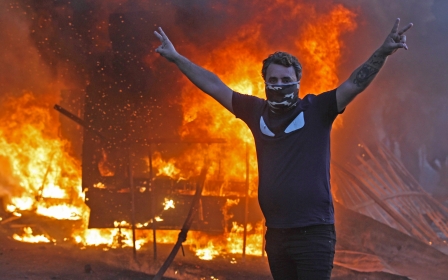Nearly 100 dead as calls grow for Iraqi government to resign over protest response

As the death toll nears 100 people killed and with thousands injured in a week of intense demonstrations, the Iraqi government on Saturday announced the lifting of a curfew in Baghdad as calls came for it to resign.
In the worst violence seen since the declared defeat of the Islamic State (IS) group in March, security forces fired live ammunition into crowds of people protesting across Iraq against corruption, unemployment and a lack of services.
The top UN official in Iraq deplored five days of violence during protests that have killed nearly 100 across the country and wounded thousands. "Five days of reported deaths and injuries; this must stop," Jeanine Hennis-Plasschaert, the special representative of the UN secretary general in Iraq, said in a tweet on Saturday.
According to the Iraqi parliament's human rights commission, 99 people have been killed and nearly 4,000 wounded since protests against unemployment and living conditions erupted Tuesday in Baghdad before spreading to the south of the country.
Reuters reported police snipers shooting at protesters on Friday, escalating the death toll. Security sources have also accused gunmen of hiding among the demonstrators, while a number of police officers have been killed.
New MEE newsletter: Jerusalem Dispatch
Sign up to get the latest insights and analysis on Israel-Palestine, alongside Turkey Unpacked and other MEE newsletters
Demonstrations have taken place in numerous regions across the country in the past week, including Baghdad, Basra, Nasiriya and Mosul.
Concrete barriers have been erected in the capital Baghdad in areas where police clashed with protesters, a significant move in a period when many of the previous concrete barriers erected to prevent IS car bombings were being removed.
The Iraqi government has also imposed a blackout by blocking internet access across the country.
Prime Minister Adel Abdul Mahdi was set to convene an emergency meeting on Saturday to discuss the protesters' demands.
However, former Prime Minister Haider al-Abadi on Friday became the latest to join a chorus of voices calling on the government to resign.
Abadi, whose own political career was torpedoed by his response to similar protests in Basra last year, also called for the "formation of a criminal court of corruption" and warned that the reforms demanded by protesters needed to be swiftly implemented.
"Early elections should be called for the formation of a legitimate constitutional government capable of carrying out its national tasks, by 2020," he said in a statement.
Influential Shia cleric Muqtada al-Sadr has also called for the resignation of the government and called on his Sairoun parliamentary group, the largest group in the parliament, to suspend its activities.
On Friday, the National Axis Alliance, the largest Sunni parliamentary bloc, also announced the suspension of its parliamentary activities in response to the protests.
In Basra, masked gunmen reportedly shot two activists dead on Thursday.
Activist Hind al-Samer told Middle East Eye that her close friends Hussein Adil and his wife Sara had been killed after taking part in protests in the southern city.
"On Thursday morning, two cars, a Salvador and a pick-up, loaded with six masked men wearing black, stopped in front of Hussein's house," said Samer.
"Two of them pushed themselves inside the house and the rest waiting outside.
"Hussein and his wife are activists. All they were doing was protesting against the corruption, and saving the protesters, and providing them with medical aid."
Samer said the identities of the killers are not known.
"But personally, I think they were Iran-backed militias, as Iran has power and had a vital role in killing tens of demonstrators in last summer protests," she said.
Qatar's foreign ministry advised its citizens on Friday not to travel to Iraq and urged those already there to leave immediately in view of ongoing unrest.
Bahrain had issued a similar warning on Thursday.
Although the government has issued promises for reforms, the problems facing Iraq have so far proved overwhelming for successive governments.
Iraq is ranked as the world's 12th most corrupt country, according to Transparency International's Corruption Perceptions Index.
According to official figures, since 2004, almost $450bn of public funds have vanished into the pockets of politicians and businessmen.
In addition, youth unemployment in Iraq is running at around 25 percent, according to the World Bank, in a country where the vast majority of the population is under 30.
Middle East Eye delivers independent and unrivalled coverage and analysis of the Middle East, North Africa and beyond. To learn more about republishing this content and the associated fees, please fill out this form. More about MEE can be found here.






